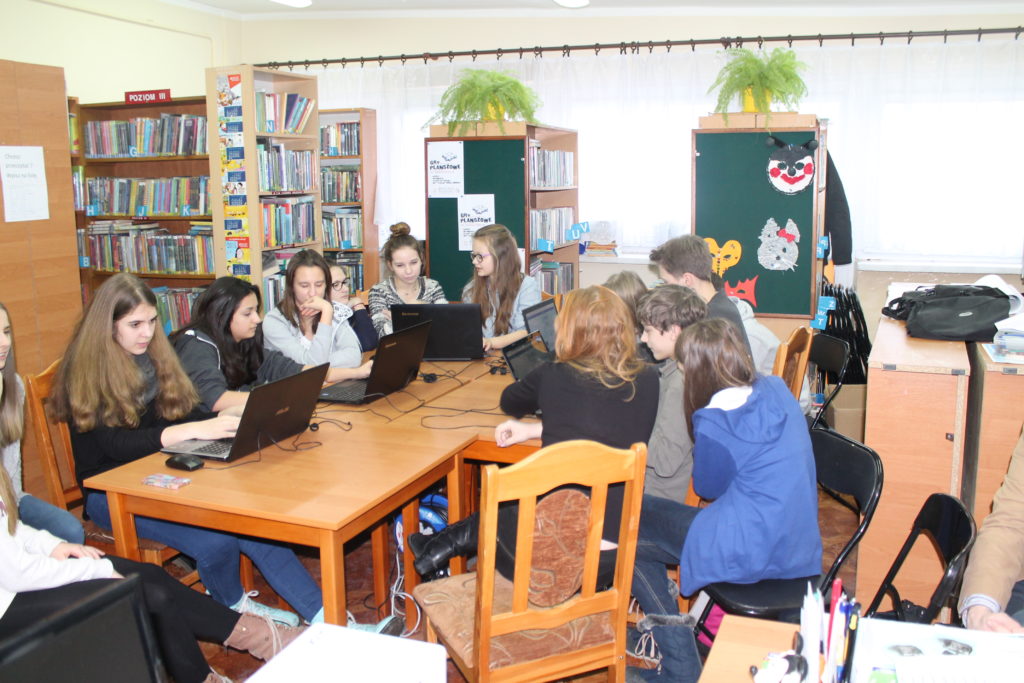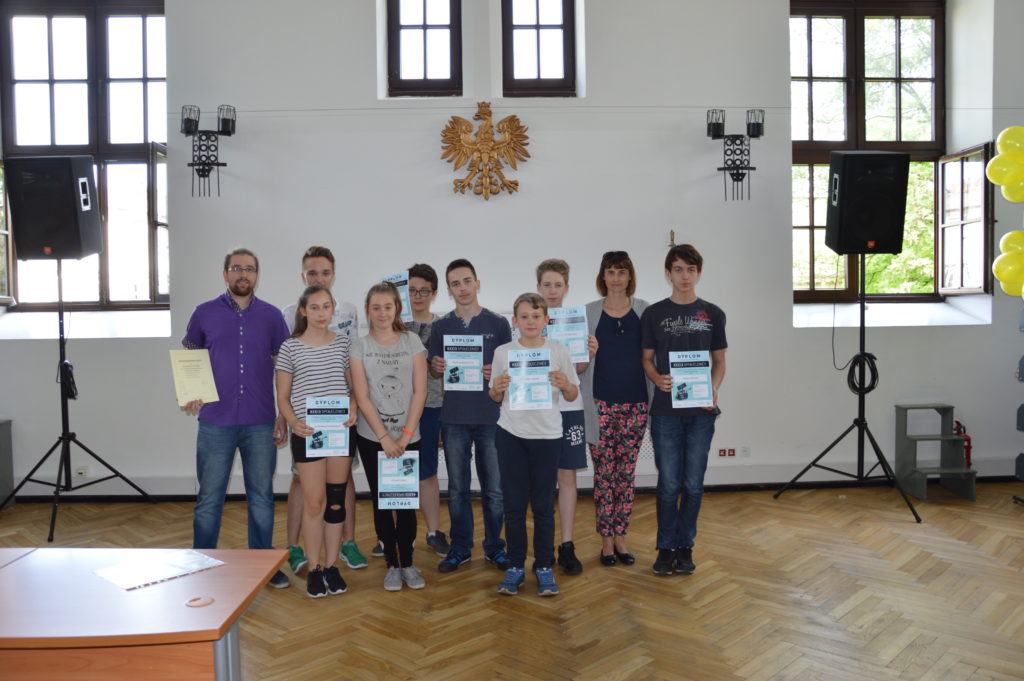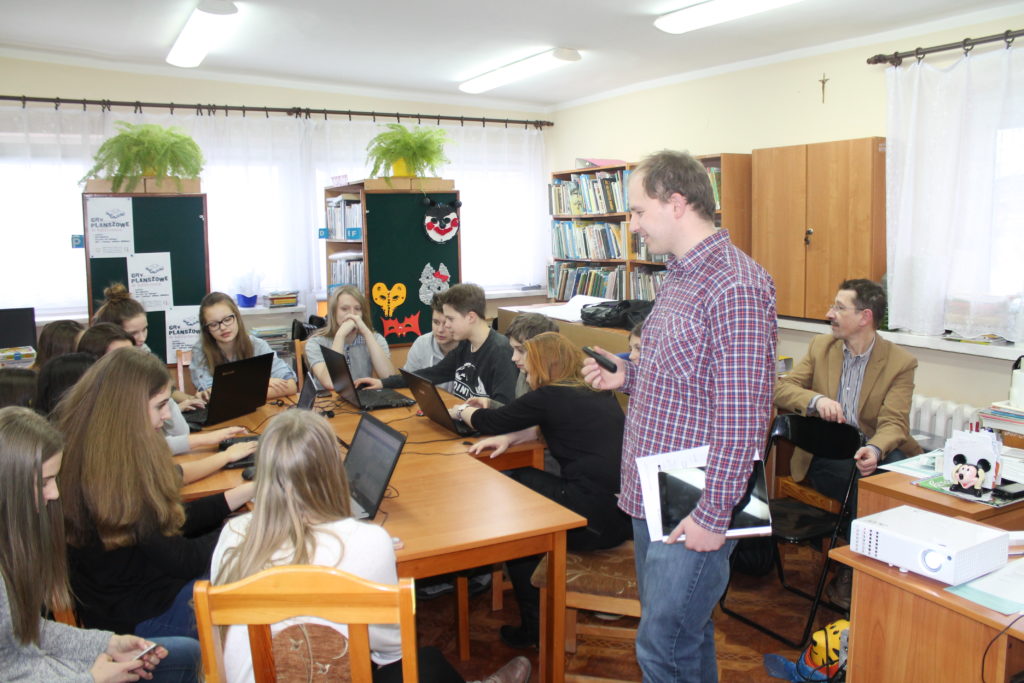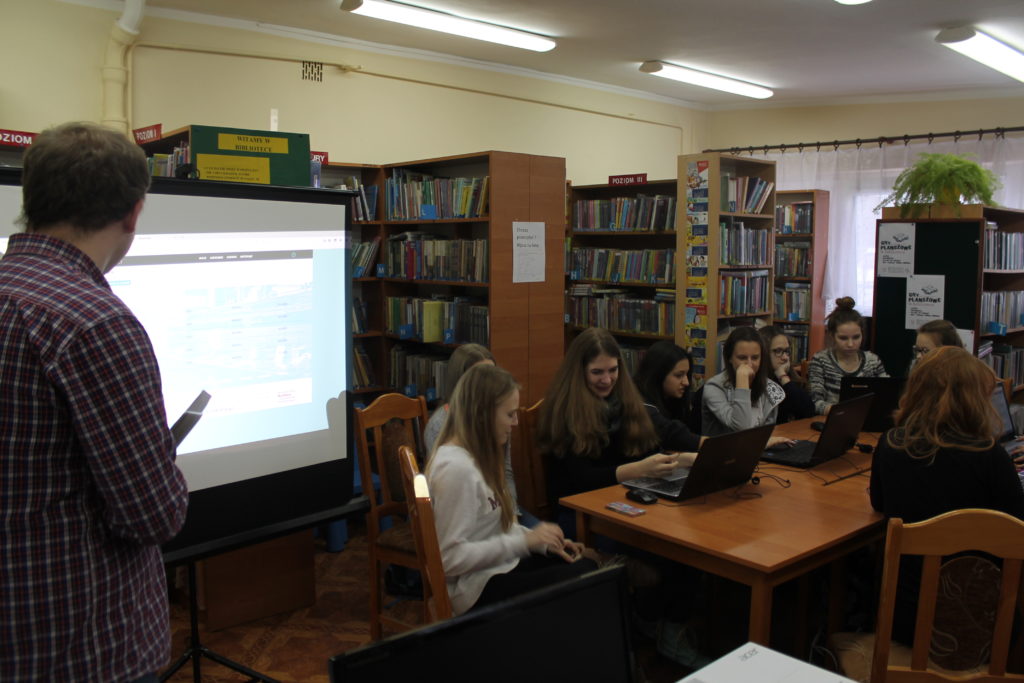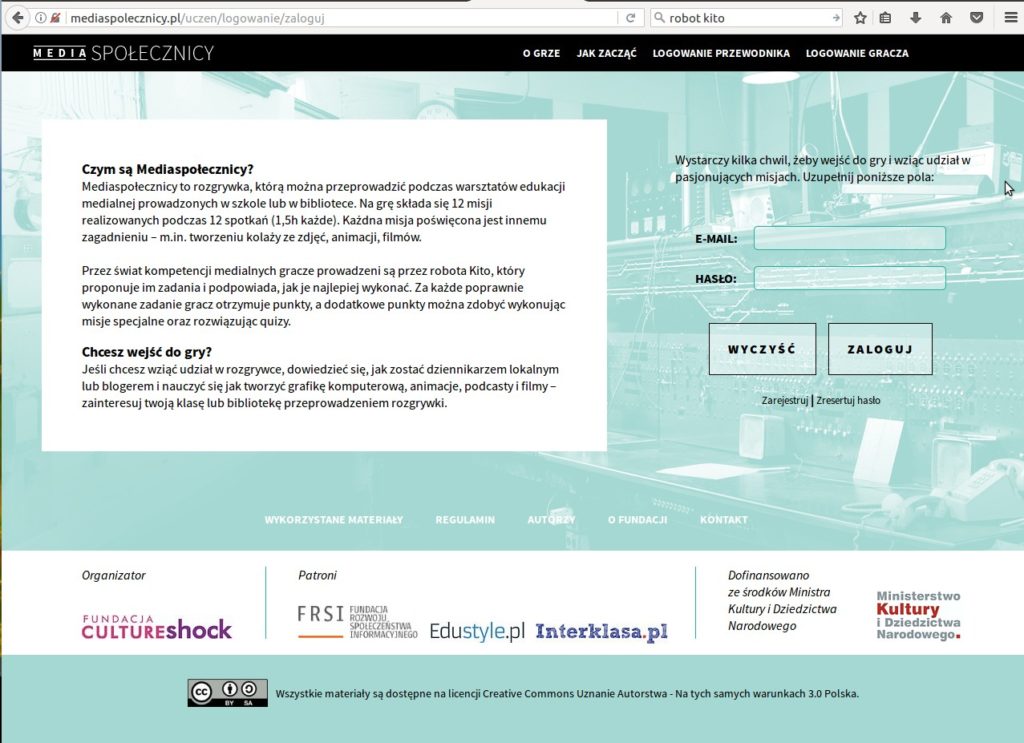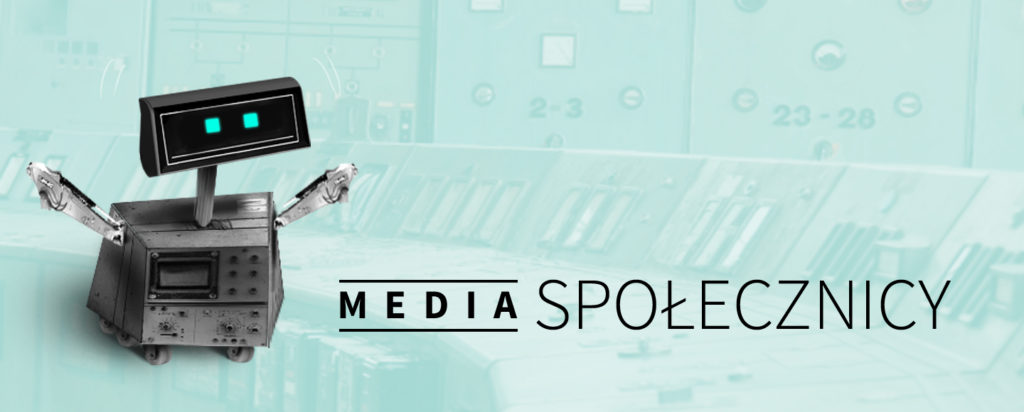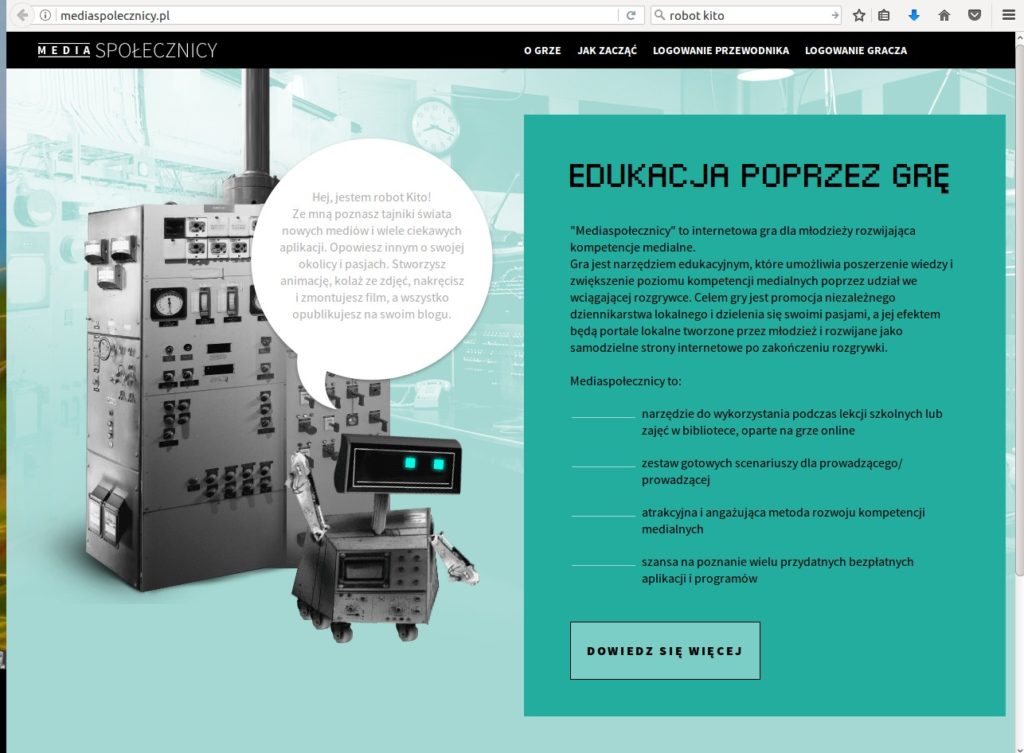Institution: Fundacja Culture Shock/ Culture Shock Foundation
Authors: Paulina Jędrzejewska, Małgorzata Rycharska
Title: Mediaspołecznicy / Media Activists
Topics: Social and civic education, blogging, photography, graphics, lm-making,
sound processing, network security, privacy online, private image, copyright, Creative Commons licenses, free resources, game.
Characteristics of participants:
The project was aimed at junior high school students (12-15 yr old) from all over Poland, especially from small towns.
Realization: 05.2015 – 05.2016
Documentation:
Photos
Mediaspolecznicy
- Project summary and innovation
“Media activists” is an unique and innovative project of Culture Shock Foundation. Its goal was to create an original web “Media Activists” game, that would help youth at a risk of digital exclusion (especially in small towns), to learn how to use new technologies and the Internet in a safe way. The project also helped participants to develop: their communication skills, creativity, teamwork skills and teach them to undertake activities in the eld of technology and new media.
Workshops have been piloted in four municipal libraries and a research workshop (beta game testing) in socio-therapy center in Warsaw. The opinions collected among the participants of workshop (youth and teachers) con rm the high utility of the game as a good educational tool.
- Operational objectives
- Attitudes: openness to cooperation with others, prosperity, pro-activity.
- Knowledge: copyright and related rights in the Internet, operating programs and web applications, netiquette, network communication, network security,
copyright. - Skills: teamwork, problem solving, creative problem solving, search and
selection, self-expression, practical use of learned programs and applications. - The purpose of the game is to create and maintain a network of relationships and contacts between students and teachers around the idea of social journalism, sharing knowledge, ideas and free tools that will be able to bring
about other projects in the future.
- Project civic engagement
Participants pursued a blog related for example to the life of the local community, or their own passions. It was important that it was an individual decision of each participant. The independent choice was the basis for motivation for further work.
The media competencies of the participants were developed through the provision of the “Media Activists” game, along with a game-based workshop program and promotion of the tool among local schools and libraries.
- The most important ICT competencies of participants:
ICT competencies:
- use of web browsers and web applications,
- audio and video editing,
- online image protection,
- open licenses,
- collage creation,
- blogging.
Other competencies:
- journalism skills,
- encouraging participants to observe their neighborhood,
- develop passion of participants.
- How does the project developed media literacy of participants?
Teachers and educators that Culture Shock has contacted with, were active people who were looking for new tools for their work. Enthusiasts of new technologies.
Media literacy of participants:
- learning the application : participants learned how to use a dozen web applications and programs that allow creative processing of the content – sound, photography, lm, word
- creating the content on the blog : during the workshops young people decided on what topic they run a blog; they learned how to conduct interviews, record interviews, edit audio and video material, write blog posts, and discuss.
-
Projects steps:
The “Media Activists” program consisted of 12 workshop meetings, related to the realization of subsequent game mission (12 game missions). At each of them, the focus was on the development of speci c digital competences, such as the use of web browsers and web applications, audio and video editing, online image protection, open licensing, collage creation, blogging, and so on.
- Each workshop last 1,5 hour. Optimal frequency of activities is 1-2 a week (depending on this, the workshop cycle lasts 6 or 12 weeks).
- On the second, fourth, sixth, eighth and tenth missions – the participants receive a Special Mission – a task to be done between workshops, before the next mission (meeting). The schedule of meetings was planned in the way that participants had time to complete tasks between meetings.
- Each meeting included a part guided by the teacher (according to the proposed scenario) and a part guided by Kito robot on the portal Mediaspołecznicy.pl (learning the application and creating the content on the blog).
- During the workshops (led by teacher), participants decided on what topic they run a blog, learned to conduct interviews, record interviews, edit audio and video material, write blog posts and discuss. Participants learned how to use a dozen web applications and programs that allow creative content processing – sound, photography, lm, word.
- The players of the game were led by online Kito’s robot (portal game), who o ered tasks and helped how to realize them. For every correctly done task, the player received points. Additional points could be earned by performing special missions and quizzes.
- The game was accompanied by a comprehensive didactic material for the teachers. The material included classroom scenarios, syllabuses, additional information beyond the workshops (game missions), enriching the tutors’ knowledge.
Main goal of the game:
- to encourage youth to observe their neighborhood, develop passion and became a local journalist or blogger (the potential for development the web as a standalone websites after the end of the game).
- From the point of view of the participants, the purpose of the game was to be the best “Medias” – a local journalist, under the watchmaker of online Kito’s robot.
Young “journalists” recognized the necessary skills and secrets of profession : How to set up your own blog? How to put photos and videos on it? How to consciously use Facebook and browsers?
-
Needed materials:
- Computers with internet access (optimally 1 per person),
- headphones,
- speakers,
- audio and video recording equipment (cameras, tablets or mobile phones),
- projector,
- Flipcharts (large cards),
- postites,
- Email address for registration in programs and applications.
-
Methods of the project:
- hands-on education,
- methods of creative problem-solving,
- methods of providing (talk, instruction),
- brainstorming.
The educational resources which were developed within this project, ie, the game “Media Activists” and game-based scenarios, are available under the Creative Commons licenses for multiple and free use by all educational institutions or the youth , thus making possible to develop media competencies of young people.
